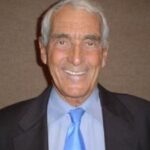Standing with Giants: A Collection of Public Health Essays in Memory of Dr. Beth Whelan, A. Alan Moghissi and Gilbert Ross, eds., American Council on Science and Health, 2016, 212 pages, ISBN-10: 0991005562, ISBN-13: 978-0991005567; $10.95 on Amazon.com.
Elizabeth (Beth) Whelan, the late founder and president of The American Council on Science and Health (ACSH), was a shining light of sound science, full of passion and courage in the face of fanaticism and scorn, determined to tell the truth against all odds.
Dr. Gilbert Ross, longtime medical director of ACSH, said Whelan “was a trailblazer, taking on the establishment as a young woman and throughout her life, forcefully but always politely educating anyone of any position on the precepts of sound science, calling out agenda, ideology, and hypocrisy posing as science.”
In Standing with Giants, 14 scientists pay tribute to Whelan by providing sound science on topics on which Whelan devoted her life. I am proud to be among those scientists.
Inaccurate Health Information
William London and Deborah Schaeffer explore the influence of health information on individual behavior, noting accurate health information is often insufficient to promote behavioral changes without interventions addressing psychosocial and environmental influences on lifestyle. In addition, the widespread availability of health misinformation often leads people to make bad choices, they observe.
Jerry Cutler, one of the world’s top experts on the health benefits of low-level radiation, writes about radiation’s ability to reduce cancer risk. Cutler examines the history of misinformation concerning the purported dangers of low-level radiation exposure and reviews the copious research showing the benefits of such radiation in certain courses of medical treatment.
Paul Driessen does an outstanding job of summarizing the benefits of DDT and showing how false claims it is dangerous cost the lives of literally millions of malaria victims around the world. More than 200 million people are infected with malaria due to the fearmongering of misanthropic environmentalists and gullible politicians, Driessen writes.
Misunderstanding Climate Research, Energy
Alan Moghissi writes how the lack of transparency in climate research has contributed to a near-total misunderstanding of the myriad factors influencing climate.
Moghissi brilliantly quotes Thomas Jefferson in his presentation, who said, “I know no safe repository of the ultimate power of the society but the people themselves, and if we think them not enlightened enough to exercise their control with a wholesome discretion, the remedy is not to take it away from them but to inform their discretion by education.”
Ed Contoski and I examine the research showing renewable energy—including wind, solar, and ethanol—has no substantial place in our nation’s energy mix. Along the way, we explore how misplaced fears of anthropogenic global warming have led to erroneous beliefs in the value of renewable energy.
Theodore Them provides a detailed criticism of New York State’s determination to ban hydraulic fracturing, which prevents the development of the state’s vast natural gas and oil reserves. The misguided fracking ban, he writes, is due to radical environmentalists’ influence on Gov. Andrew Cuomo (D) and the actions of inept Commissioner of Health Howard Zucker.
Misguided Science
Thomas DeGregori does the best job I’ve ever seen of explaining the threat the idea of “sustainability” poses to U.S. society, describing it as a dangerous religion.
As DeGregori notes, in the United States today we have about the same amount of land under cultivation as we had in 1925, yet grain output is seven times greater, indicating technological advances increase sustainability.
DeGregori also documents how anti-biotechnology activists have kept genetically engineered Golden Rice off the market, resulting in as many as 350,000 deaths annually from vitamin A deficiency.
Stanley Young provides statistics showing air quality standards are not improving public health. Young notes air quality has not been a significant health risk since before the Environmental Protection Agency issued its first set of clean air regulations in the 1970s.
Dr. Sally Satel summarizes ACSH’s efforts to provide sound science on the effects of tobacco smoking in the face of corporations’ efforts to disguise its horrendous impacts.
As one of the great women of science, Beth Whelan would be very proud of this volume created in her memory.
Jay Lehr, Ph.D. ([email protected]) is science director for The Heartland Institute.





